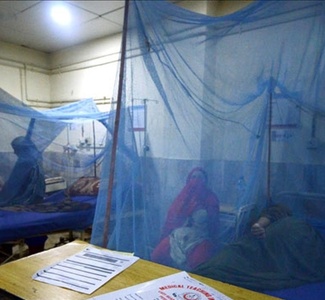At least 18 dead, 12 injured in Nigeria road accident
A devastating road accident occurred on Friday in Zakirai town along the Kano-Ringim Road in Gabasawa Local Government Area of Kano state, resulting in the loss of eighteen lives.

 Google News'te Doğruhaber'e abone olun.
Google News'te Doğruhaber'e abone olun. Additionally, twelve individuals sustained injuries, while five managed to escape unharmed, according to Ibrahim Abdullahi, the Sector Commander of the Federal Road Safety Corps (FRSC) in Kano.
The accident involved two commercial vehicles, and the FRSC swiftly dispatched personnel upon receiving the distress call at approximately 8:35 p.m. on Friday to provide assistance and rescue the victims.
The official attributed the cause of the accident to excessive speeding, dangerous driving, and overloading, which led to a head-on collision and the subsequent ignition of one of the vehicles, resulting in a tragic fire.
Out of the total 35 passengers in both buses, 18 individuals were tragically burned beyond recognition, while 12 others sustained severe injuries.
The injured victims were immediately transported to Murtala Mohammed General Hospital in Kano for medical treatment.
In Nigeria, road accidents continue to pose a significant threat to public safety, with several factors contributing to these unfortunate incidents. Authorities and stakeholders are called upon to address these concerns to ensure safer roads for all citizens.
Excessive speeding remains a prominent cause of road accidents across the country. Despite designated speed limits, many drivers fail to adhere to these regulations, significantly increasing the risk of losing control of their vehicles and causing collisions.
Reckless driving practices exacerbate the situation, as drivers engage in dangerous behaviors such as aggressive overtaking, abrupt lane changes, and a general disregard for traffic rules. These reckless acts not only jeopardize the lives of the drivers themselves but also endanger the safety of other road users.
The issue of overloading also plagues Nigerian roads, with vehicles frequently carrying passengers or goods beyond their recommended capacity. This practice compromises vehicle stability and maneuverability, creating a breeding ground for accidents.
Moreover, the poor condition of road infrastructure amplifies the risk of accidents. Dilapidated roads, riddled with potholes and lacking proper signage and road markings, contribute to hazardous driving conditions. Neglected road maintenance further escalates the likelihood of skidding, loss of control, and ultimately, collisions.
Compromised vehicle condition adds to the perilous road environment. Many vehicles plying Nigerian roads are not adequately maintained or roadworthy. Malfunctions in crucial components such as brakes, tires, and lights increase the chances of accidents occurring.
Driving under the influence of alcohol or drugs poses a significant threat to road safety, impairing judgment, coordination, and reaction time. Such impaired driving heightens the risk of accidents and endangers the lives of both the drivers and other road users.
Insufficient driver education and training programs also contribute to the prevalence of road accidents. Inadequate knowledge of traffic rules, road safety practices, and defensive driving techniques hinders drivers from making informed decisions on the road.
Non-compliance with seat belt and helmet usage further worsens the situation. Failure to utilize these safety measures significantly increases the severity of injuries sustained in accidents and can even lead to fatalities.
The weak enforcement of traffic laws and lenient penalties for traffic offenses contribute to a culture of non-compliance and reckless driving. Inconsistent enforcement undermines compliance and emboldens drivers to engage in dangerous behaviors.
Addressing these pressing concerns necessitates a comprehensive approach. Urgent measures include improving road infrastructure, ensuring strict enforcement of traffic laws, launching public education campaigns on road safety, implementing comprehensive driver training programs, conducting regular vehicle inspections, and fostering a culture of responsible driving among all road users.
By collectively tackling these factors, Nigeria can pave the way for safer roads, protecting the lives of its citizens and promoting a more secure transportation environment for all. (ILKHA)



















































